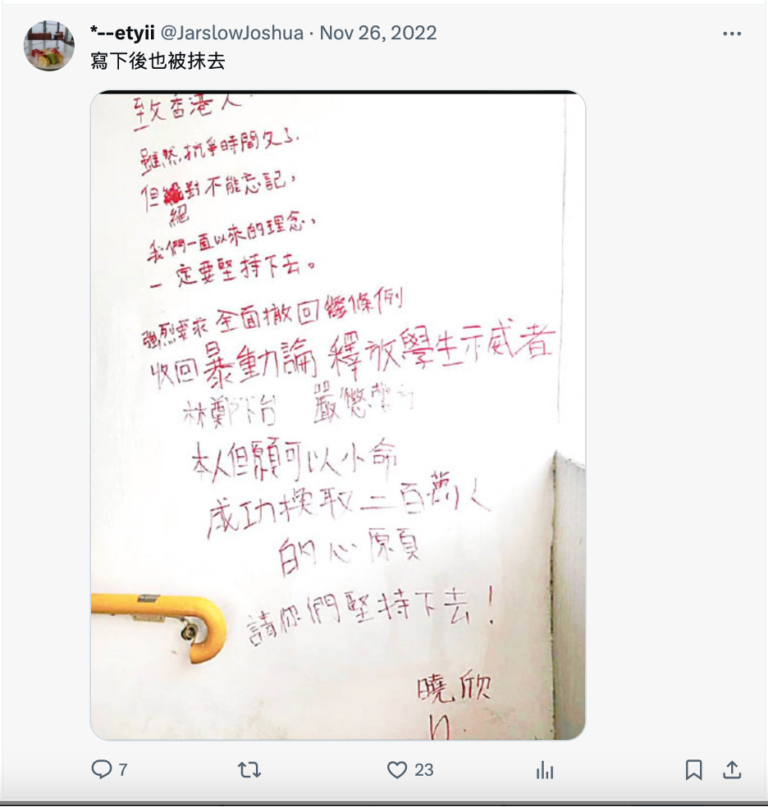This article examines the meaning‐making work of historical, cultural, and visual references in the 2022 anti-Zero-COVID policy protests in China. Characterized by homemade protest placards, the wave of 2022 grassroots protests were striking, typically citing well-known historical quotes, written in red paint, or the use of plain white paper. Using the frameworks of affect theory and analyses of visual culture, I draw attention to underexamined forms of Chinese cultural and visual traditions of protest, and address the following empirical questions: Which national visual cultural references are mobilized in this contemporary protest; how do people repurpose specific cultural idiosyncrasies to voice political dissent; and how do these references contribute to local political meaning‐making and community-making? Via a qualitative analysis of such signs, this study identifies three types of cultural resources permissible by the state that became co‐opted in the protests: 1) literature from anti-imperial times, 2) motivational slogans and symbols from the cultural revolution, and 3) the contemporary technique of censorship. These references are appropriated for the potential afforded by their recognizability, their affective function to articulate the political cause, and their ability to bypass censorship and generate communities across national and regional boundaries. Examining the A4 Revolution as a paradigmatic case, I argue visual historical citation holds significant aesthetic, affective, and political value, particularly in its capacity to mobilize the masses within undemocratic environments. The affective visuals used in the protests can be read as a performative, strategic, and psychosocial device of “critical inheritance from the bottom up,” one that invites citizens to re-access cultural memory and critique the oppressive present.
